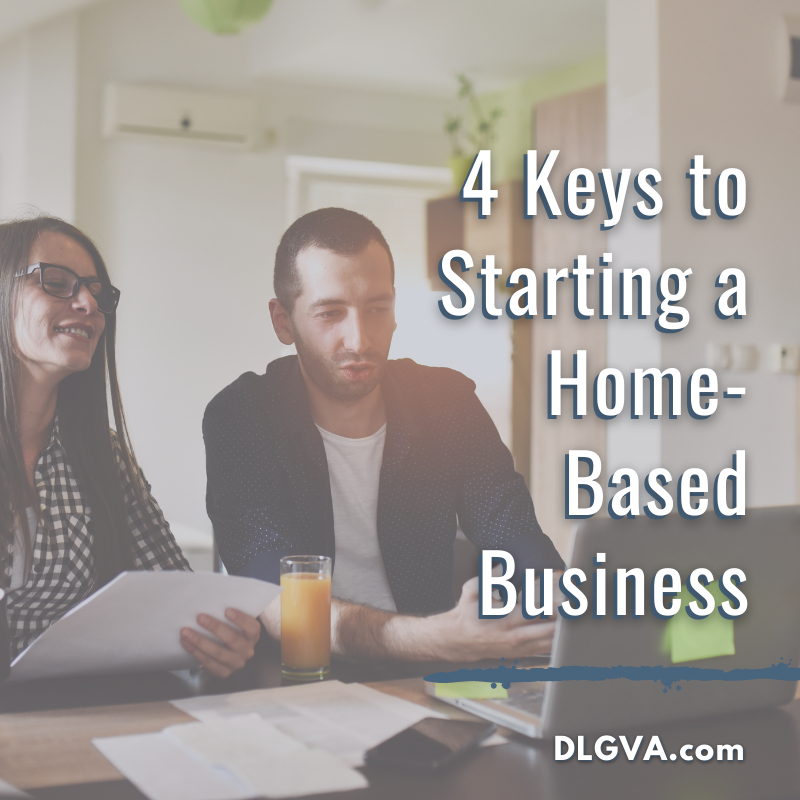
Are you dreaming of turning your passion into a profitable home-based business? The idea of being your own boss, setting your own hours, and working from the comfort of your home office is incredibly appealing. But before you dive in, it's crucial to understand the legal requirements and steps involved in setting up a home-based business. This guide will walk you through the process, ensuring you start your entrepreneurial journey on the right foot.
Understanding the Legal Landscape
Setting up a home-based business involves more than just hanging a sign on your door. You need to navigate a maze of legal requirements and business registrations. Think of it like building a house: you need a solid foundation before you can start decorating. The same goes for your business; you need to lay the legal groundwork before you can start operating.
Business Registration: The First Step
The first step in setting up a home-based business is registering your business. This is akin to getting your driver's license before you hit the road. Business registration varies by country and state, but generally, you'll need to decide on your business structure. Will you be a sole proprietor, a partnership, or a limited liability company (LLC)? Each has its own legal and tax implications, so it's important to choose wisely.
For example, in the United States, you can register your business with your state government. The U.S. Small Business Administration (SBA) provides a wealth of resources to guide you through this process.
Legal Requirements: What You Need to Know
Once you've registered your business, you'll need to comply with various legal requirements. This includes obtaining the necessary permits and licenses. Think of these as your passport to operate legally. Without them, you could face hefty fines or even be forced to shut down.
The types of permits and licenses you need depend on your business type and location. For instance, if you're starting a home-based bakery, you might need a food service license. The SBA's Business License and Permit Guide is a great resource to help you determine what you need.
Setting Up Your Home Office
Your home office is the heart of your business. It's where you'll spend countless hours planning, strategizing, and executing your business goals. But setting up a home office isn't just about having a comfortable chair and a fast internet connection. There are legal considerations as well.
For example, you might need to check with your local zoning laws to ensure that operating a business from your home is allowed. Some areas have restrictions on home-based businesses, especially if you plan to have customers or clients visiting your home.

Business License: Your Ticket to Operate
A business license is your official permission to operate. It's like your ticket to the entrepreneurial dance. Without it, you're just a wallflower, watching from the sidelines.
The process of obtaining a business license varies by location. In some cases, you might need to apply for a general business license from your city or county. In other cases, you might need a specific license related to your industry. The SBA's Business License and Permit Guide can help you navigate this process.
Tax Obligations: What You Need to Know
Taxes are an inevitable part of running a business. Think of them as the toll you pay to keep the entrepreneurial highway running smoothly. As a home-based business owner, you'll have certain tax obligations. These can include federal, state, and local taxes.
For example, in the United States, you'll need to obtain an Employer Identification Number (EIN) from the Internal Revenue Service (IRS). This is like your business's social security number. You'll also need to understand your tax filing requirements and deadlines. The IRS's Small Business and Self-Employed Tax Center is a great resource for this.

Insurance: Protecting Your Business
Insurance is like a safety net for your business. It protects you from unexpected events that could otherwise derail your entrepreneurial journey. As a home-based business owner, you'll need to consider various types of insurance, including liability insurance, property insurance, and business interruption insurance.
The type of insurance you need depends on your business type and location. The SBA's Business Insurance Guide can help you determine what you need.
Conclusion: Your Journey Begins Here
Setting up a home-based business legally involves navigating a maze of legal requirements and business registrations. But with the right guidance and resources, you can lay a solid foundation for your entrepreneurial journey. Remember, every successful business starts with a single step. So, are you ready to take that step?
FAQs
Do I need a business license to operate a home-based business? Yes, in most cases, you'll need a business license to operate a home-based business. The specific requirements vary by location and industry.
What are the tax obligations for a home-based business? The tax obligations for a home-based business include federal, state, and local taxes. You'll need to obtain an EIN and understand your tax filing requirements and deadlines.
Do I need insurance for my home-based business? Yes, insurance is crucial for protecting your home-based business from unexpected events. The type of insurance you need depends on your business type and location.
How do I register my home-based business? The process of registering a home-based business varies by country and state. Generally, you'll need to decide on your business structure and register with your state government.
What legal requirements do I need to comply with for my home-based business? The legal requirements for a home-based business include obtaining the necessary permits and licenses, complying with zoning laws, and understanding your tax obligations. The specific requirements vary by location and industry.
Posting Komentar